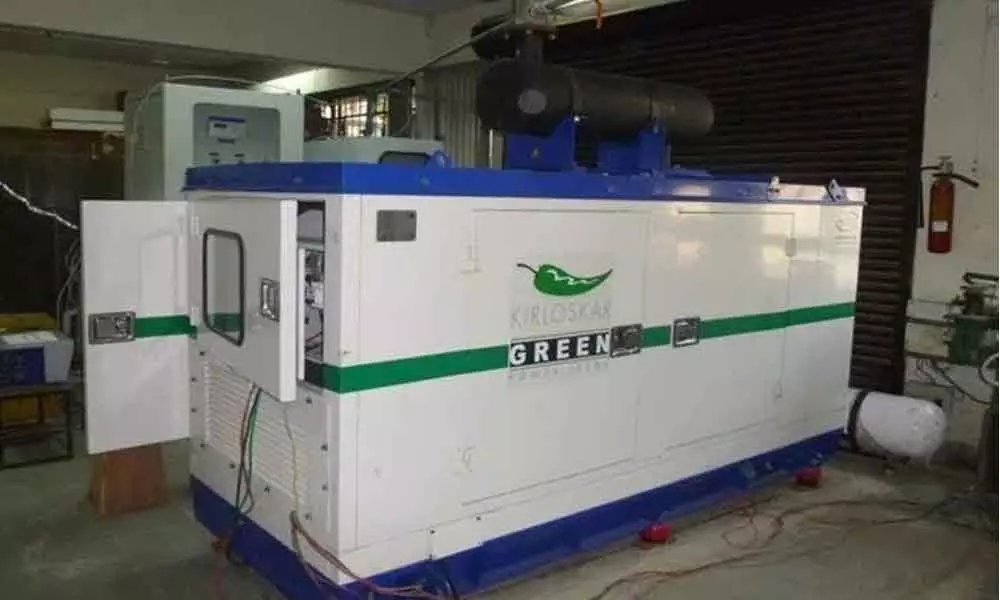IIT-Delhi builds zero emission generator
As Hydrogen does not contain carbon, the hydrogen-fuelled engine does not emit any carbonaceous emissions
image for illustrative purpose

New Delhi: THE Engines and Unconventional Fuels Laboratory, Indian Institute of Technology, New Delhi has developed and built 'Hydrogen fuelled Spark-Ignition Engine Generator' to combat dirty fuel emission from conventional electricity generators.
The technology was built in collaboration with Kirloskar Oil Engines Limited (KOEL), and the Indian Oil's (IOCL) Research and Development Centre for the utilisation of hydrogen in internal combustion engines for zero-emission with higher thermal efficiency.
The project has been funded by Ministry of New and Renewable Energy (MNRE), GoI, along with additional funding by KOEL and IOCL R&D Centre.
As Hydrogen does not contain carbon, the hydrogen-fuelled engine does not emit any carbonaceous emissions. The emission 'oxides of nitrogen' can be controlled to ultra-low level using the appropriate technologies. IIT Delhi and KOEL have jointly filed a patent application for the technology.
It is said that the technology will be useful to the industries (chloro-Alkali, Ammonia, etc.), those who are producing hydrogen as tangible or main products, to generate electrical power to meet their in house-power requirement in the industry.
The surplus energy generated from this technology can be converted into hydrogen using the electrolyse process. Furthermore, the electricity can be produced using the engine to meet the needs during peak load demand, during emergency or when short-term grid power is unavailable. The developed hydrogen engine can also be used in decentralised power generation for industries, buildings, etc. If hydrogen infrastructure can be developed and made available in the future, diesel generators can be replaced with hydrogen generators for electrical power generation. It will help to control air pollution, especially in urban areas.

